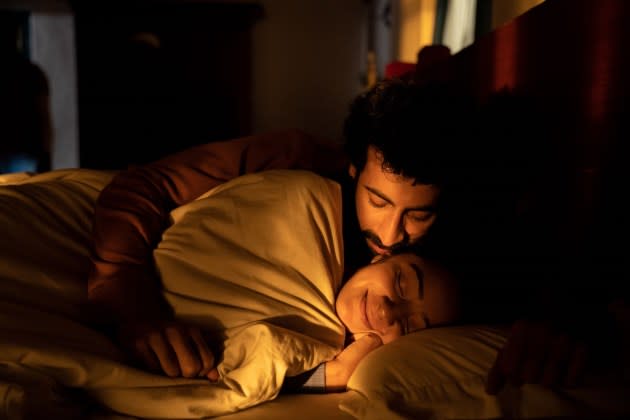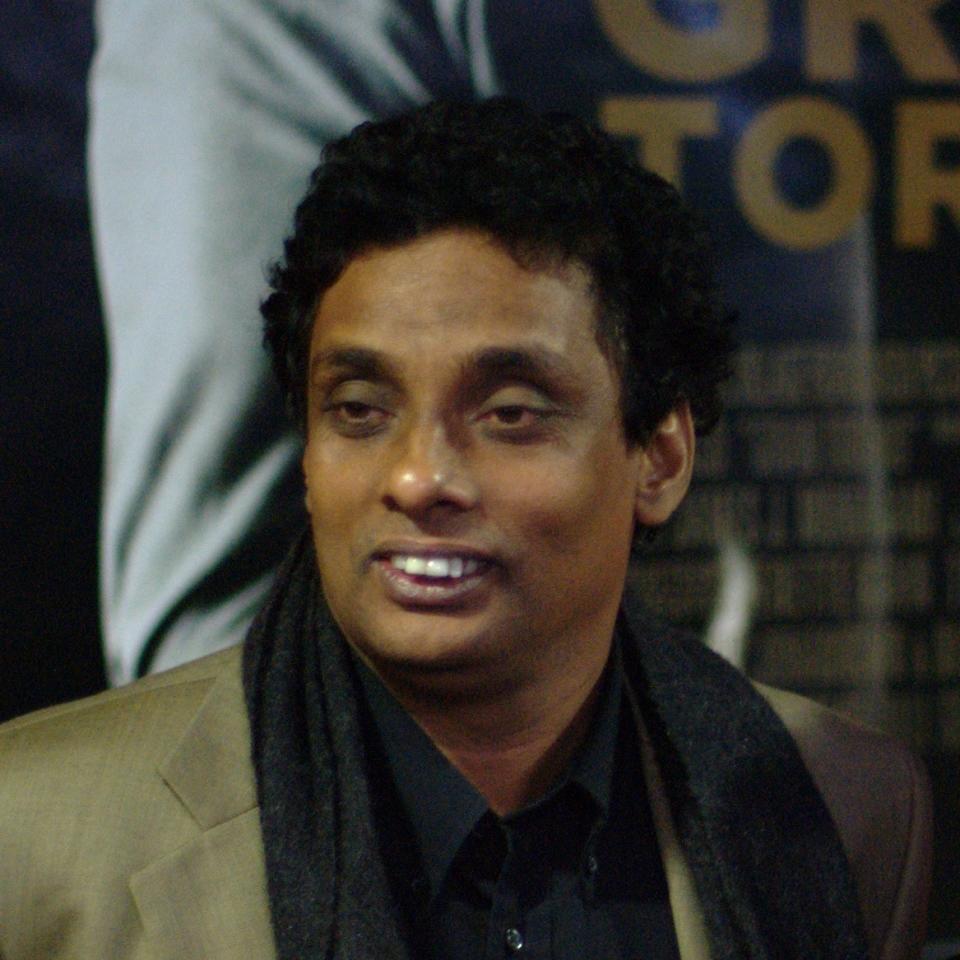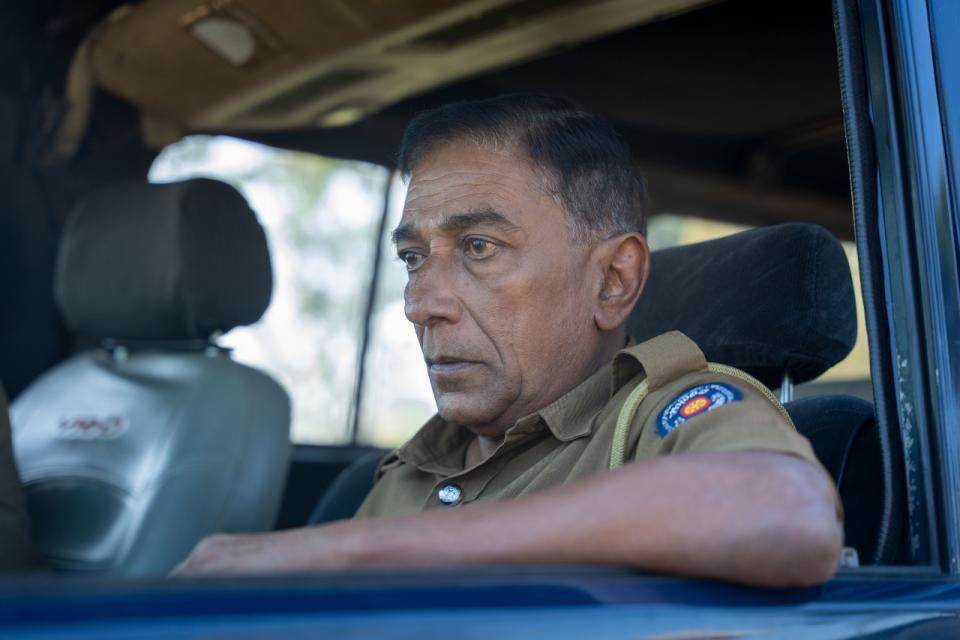Prasanna Vithanage On Sri Lanka’s Economic Crisis; Power Dynamics In Society & Marriage In Award-Winning Feature ‘Paradise’ – Mumbai Film Festival
- Oops!Something went wrong.Please try again later.
- Oops!Something went wrong.Please try again later.

Paradise, directed by Sri Lankan filmmaker Prasanna Vithanage, is playing in the Icons: South Asia section of Mumbai Film Festival, fresh from its world premiere at Busan International Film Festival where it won the Jiseok Award.
The film follows an Indian couple on holiday in Sri Lanka, where they are touring the Ramayana Trail, a set of locations connected to the Indian mythological epic, just as the country’s economic crisis is starting to kick off. Despite the beauty and signs of impending chaos around them, the husband seems more preoccupied with the Netflix commission he’s just won, prioritizing his professional ambitions, while the wife questions the tour guide’s interpretation of the Ramayana.
More from Deadline
When the couple are held at knifepoint and have their phones and laptops stolen, they ask for help from a stoic local police officer who quickly produces three suspects. Their relationship is then severely tested as different values and the complex power dynamics between husband and wife start to emerge.
Produced by Newton Cinema and presented by Mani Ratnam’s Madras Talkies, the film stars Roshan Mathew, Darshana Rajendran, Shyam Fernando and Mahendra Perera and was shot by award-winning cinematographer Rajeev Ravi (Dev D, Liar’s Dice). Anto Chittilappilly’s Netwon Cinema also recently produced Don Palathara’s Malayalam-language Family, which premiered at this year’s Rotterdam film festival.
Vithanage is one of Sri Lanka’s most celebrated directors with credits including Purahanda Kaluwara (1997), Flowers Of The Sky (2008) and Children Of The Sun (2019), which won the UNESCO Award at the Asia Pacific Screen Awards.
As it emerged from the pandemic, Sri Lanka suffered a major economic crisis in March 2022, with the country declaring bankruptcy, resulting in food and fuel shortages, massive street protests and the ousting of President Gotabaya Rajapaksa. While the agitation has since stabilized, the country is still a long way from resolving its financial difficulties.
DEADLINE: Was the film inspired by Sri Lanka’s economic crisis? Why did you decide to tell a story about Indian tourists in Sri Lanka?
PRASANNA VITHANAGE: During the financial crisis, I had discussions with Anjali Patil, an Indian actress I’d worked with in 2012 [on With You, Without You] who said she wanted to do something for Sri Lanka. So I started working on this idea about Indian tourists coming to Sri Lanka, which she wanted to produce, although she later quit the project due to creative differences. Then I met Newton Cinema and they agreed to finance and produce.

So yes, it all started happening in March 2022 when people were out in the streets demanding gas and essentials. I kept asking myself – what do I have to say about all this? How can I capture the essence of the moment with the characters in this story? But as I was writing about a couple, and I’m also a married man for 31 years, I wanted to look into myself and explore the psychology in marriage also.
DL: Is this film saying that it’s difficult to have true equality in marriage, even in a very contemporary, modern-day relationship between two professionals?
PV: In this film, I think it’s more about the absence of love – in the marriage of this couple, love is not the primary thing any more. Ambitions and professional goals are interfering and creating a power imbalance. Although they both have careers, the husband assumes that his career matters more.
DL: The film deals with many other themes, including privilege, social injustice and the impact of economic instability, which are universal issues, but is there anything specific about Sri Lankan culture that you’d like to explain to Western audiences?
PV: Yes, the couple are touring Sri Lanka’s tea estates, which were previously owned by the British. During colonial times, the local Sinhalese people refused to work on these estates, so the British brought in labor from Tamil Nadu in India. When the British left, many of these “Estate Tamils” were left behind and were treated by the Sri Lankans as second class citizens. You can see in the film that immediately these estate workers become suspects, easy targets, and while the visiting tourists are Indian, they don’t see these people as also being Indians.
DL: How involved was Mani Ratnam in the film?
PV: I’ve grown up with his films and met him many times. When I do post-production in Tamil Nadu, I always invite him for a screening of my film. Then when he was making Ponniyin Selvan he asked me to be his line producer, because part of the story happens in Sri Lanka, but it didn’t happen because of the pandemic. He kindly agreed to lend his banner and his name to this film to give it dignity and power to reach the Indian audience.

DL: How did you meet Newton Cinema and did they fully finance the film?
PV: I met them through my cinematographer Rajeev Ravi – they’re based in Cochin [city in Kerala, India] although the CEO Anto Chittilappilly is in the software business and based in Boston. And yes they fully financed, for which I’m very grateful. When they were producing this film, the inflation rate in Sri Lanka was 65% and because of the unrest in the country we had no idea what would happen during the shooting. So they took on a huge risk. They were financing a film in another country, at a time of great instability, with just a few technicians from India and trusted we would deliver.
DL: What is the current situation in Sri Lanka – in terms of both the economy and Sri Lankan cinema?
PV: Right now there are no food and gas shortages, tourists are returning and negotiations are ongoing for the second tranche of the IMF bailout. But Sri Lanka’s crisis is not just economic – it goes much deeper than that into corruption and lack of accountability.
What’s interesting about this current crisis is that the citizen movement has risen up. Previously, Sri Lanka’s middle class would never raise its voice, but now we’ve seen everyone from the lower middle class to the upper middle class join the agitation. At the moment, there’s a strong sense of civil rights among the people, so we just hope the politicians will listen and fight to end corruption so we can move forward into a new era of accountability.
As for our cinema, like any other country, when there’s a crisis, an economic meltdown, culture is going to suffer the most as the budget cuts start from there. We are all living under austerity measures, so it’s very difficult to raise funds for films locally. We don’t have government funding and local businesses are suffering.
Our cinemas have reopened but right now we’re still releasing the films that were made before the crisis. Young people are going back to the cinemas, because they have relatively more buying power, but for families to go to the multiplex has become a huge burden. They’re much more likely to wait for films to come to streaming platforms or television.
DL: Despite the challenges, are you still working on future projects?
PV: I was determined that after making this film, I should start writing, so I’m working on an adaptation of Dostoevsky’s The Gambler. Gambling is not allowed in India, but foreigners are allowed to gamble in Sri Lanka, so we have huge tour groups coming over every weekend from Cochin and Mumbai. But again, I want to analyse human relationships because Dostoevsky’s novel is also an intense story about love.
Best of Deadline
2023 Premiere Dates For New & Returning Series On Broadcast, Cable & Streaming
SAG-AFTRA Interim Agreements: Full List Of Movies And TV Series
Sign up for Deadline's Newsletter. For the latest news, follow us on Facebook, Twitter, and Instagram.

